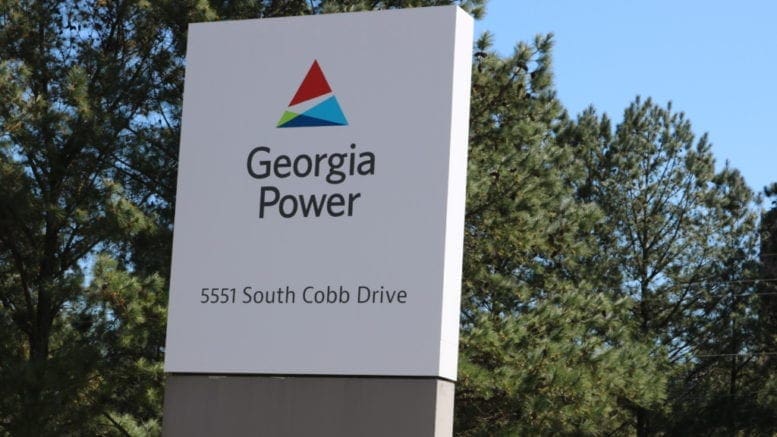by Stanley Dunlap, Georgia Recorder [This article first appeared in the Georgia Recorder, republished with permission]
June 20, 2023
U.S. Environmental Protection Agency officials are seeking public input on a proposal to close a regulatory loophole that conservationists claim utilities are exploiting to avoid cleaning up toxic coal ash from retired power plants.
The EPA is accepting written public comments through July 17 on the draft coal ash rule that adds federal level regulations for controlling and cleaning up contamination caused by the disposal of tons of coal ash generated by dozens of now-inactive power plants. According to the agency, shuttered power plants where toxic metals are more likely to be dumped into unlined and unmonitored coal ash ponds and landfills pose a greater risk to the public’s health.
The new policy could force Georgia’s largest utility company to abandon plans to leave coal ash in contact with groundwater at some of its older sites. Georgia Power once operated nine coal-fired power plants across the state.
The rule would cover the toxic waste stored in ash pits, ponds and landfills that were grandfathered in by the EPA’s 2015 Coal Ash Rule that created the first-ever safety measures to protect the public and the environment from old methods of disposal.
Georgia Power operates 24 coal ash ponds and landfills that are regulated by the federal government, as it moves closer to retiring its fleet of coal-burning facilities. But a major coal ash lagoon at Plant Hammond near Rome is one of the older dumping grounds that were excluded in the October 2015 rulemaking.
In Georgia, only one plant has groundwater levels considered below safe standards established by federal and state guidelines, according to the environmental law organization Earthjustice.
The EPA has an in-person public hearing on the proposed rule scheduled in Chicago on June 28 and people also have an opportunity to voice their opinions during a daylong virtual meeting on July 12.
“The old coal ash sites oftentimes are more dangerous than the newer ones because they are even more primitive,” said Frank Holleman, an attorney with the Southern Environmental Law Center. “They’ve been out there a longer period of time, so they’ve gotten more decrepit and more subject to erosion, flooding and other problems.”
While the rulemaking process continues, a Georgia Power sibling utility is fighting a federal lawsuit filed by a coastal protection group over coal ash cleanup in Alabama.
Lagniappemobile.com reported on March 22 that the EPA agreed with Mobile Baykeeper that Alabama Power’s $1 billion remediation project violated federal law by endangering the Mobile River and surrounding delta.
Alabama Power argues that the coastal group’s push for moving millions of tons of coal ash further from the riverside would pose a greater environmental threat than its current riverside unlined pit.
Holleman said that Alabama Power is trying to skirt federal oversight by claiming groundwater is not a liquid.
The SELC filed the U.S. lawsuit on behalf of the Mobile conservationists in September.
The EPA’s landmark decision in December had ripple effects across Georgia, after Ohio utilities admitted several dozen dumpsites fall under the jurisdiction of the EPA. At the time, clean energy groups were banking on the EPA’s soon-to-be-released May policy imposing restrictions on at least another 30 inactive landfills and ponds in Ohio.
As Georgia Power transitions away from burning coal to generate electricity, officials have long asserted that the closure strategy complies with state and federal regulations.
The company is undergoing a closure process, which involves draining most of the unlined coal-ash ponds and relocating the hazardous material into dry, lined pits that will better protect groundwater from contamination. Georgia Power’s plans, however, still call for the toxic waste to remain permanently buried in eight uncovered ponds located on company property.
Georgia Power awaits the federal environmental agency’s decision on its ash waste cleanup program. Environmental groups contend that draft permits issued by the state’s Environmental Protection Division don’t adequately safeguard clean water.
“We are reviewing the rule to understand any potential impacts to our traditional electric retail operating companies’ Coal Combustion Residuals (CCR) facilities,” Southern Co. spokesman Schuyler Baehman wrote in an email on Monday. “The CCR facilities EPA is now proposing to regulate under federal regulations are either already closed or are regulated under existing state regulations. Our operating companies will continue to work with EPA and state authorities to fully comply with CCR regulations, and we look forward to constructive engagement with EPA on this proposal.”
Mark Woodall, with the Sierra Club of Georgia, said that while North Carolina’s Duke Energy is excavating 140 million tons of coal ash in a safer manner, Southern’s subsidiary in Alabama drags its feet over legal interpretations of terms like infiltration and groundwater.
“Plant Barry could be a precedent setting decision for Georgia,” he said. “It reminds me of Georgia Power’s conspiring with Georgia EPD to redefine the word infiltration.”
Georgia Recorder is part of States Newsroom, a network of news bureaus supported by grants and a coalition of donors as a 501c(3) public charity. Georgia Recorder maintains editorial independence. Contact Editor John McCosh for questions: info@georgiarecorder.com. Follow Georgia Recorder on Facebook and Twitter.
